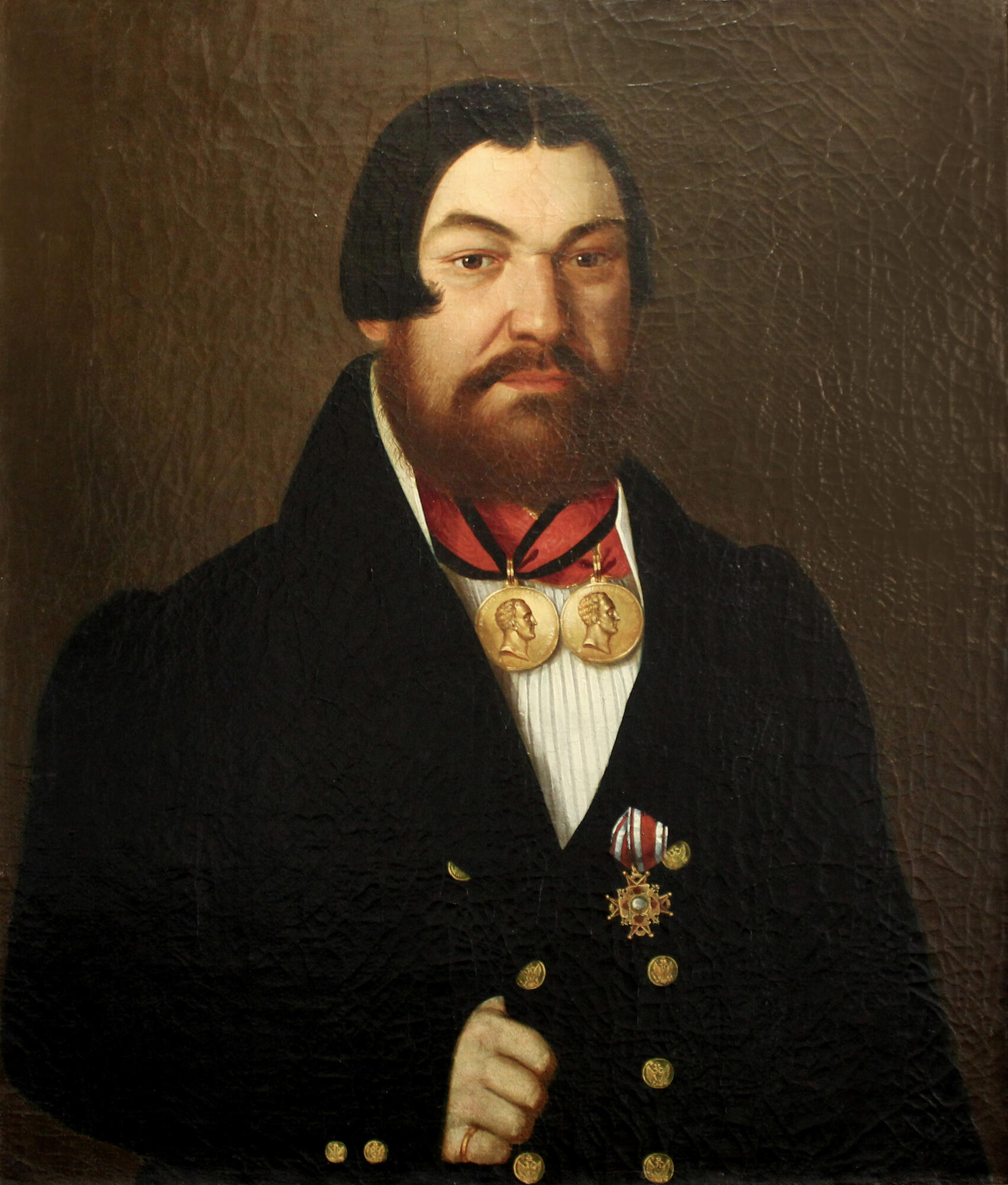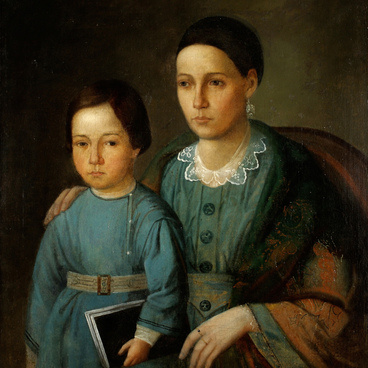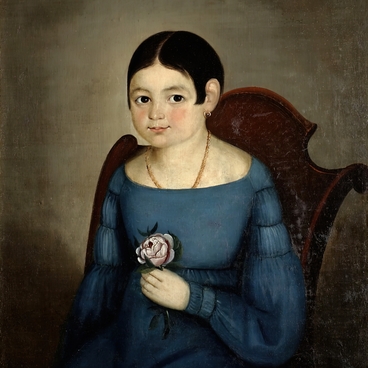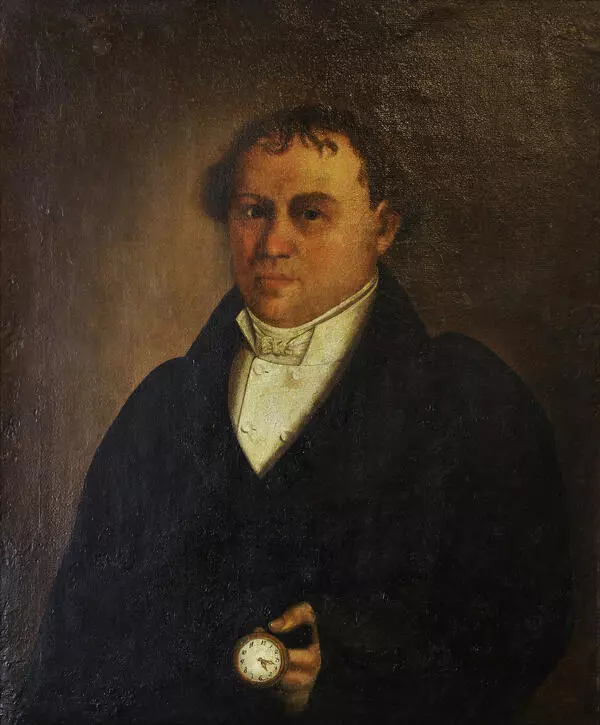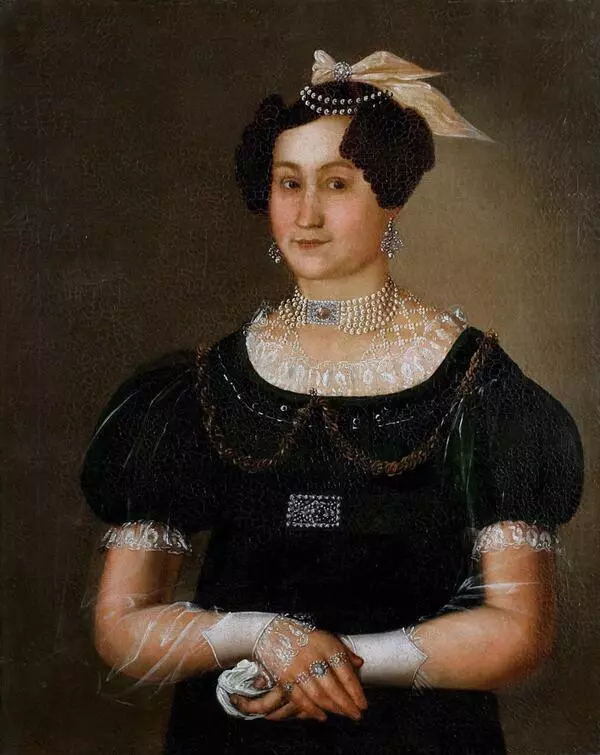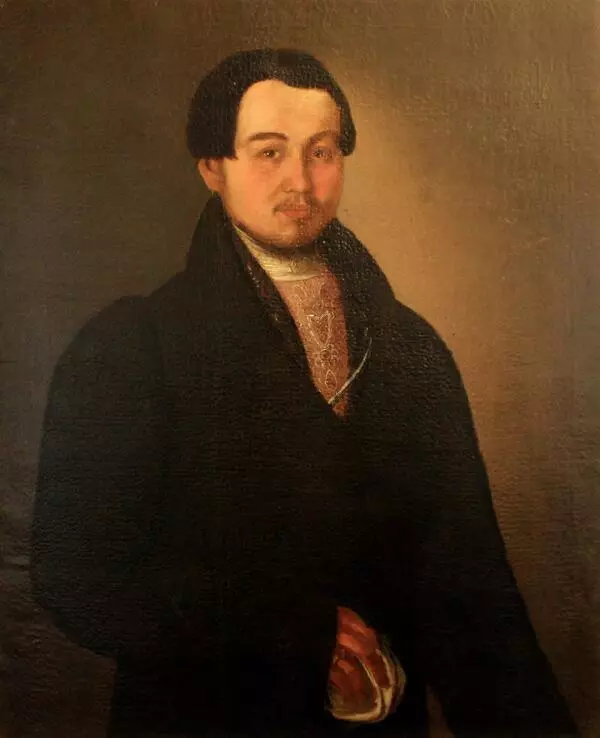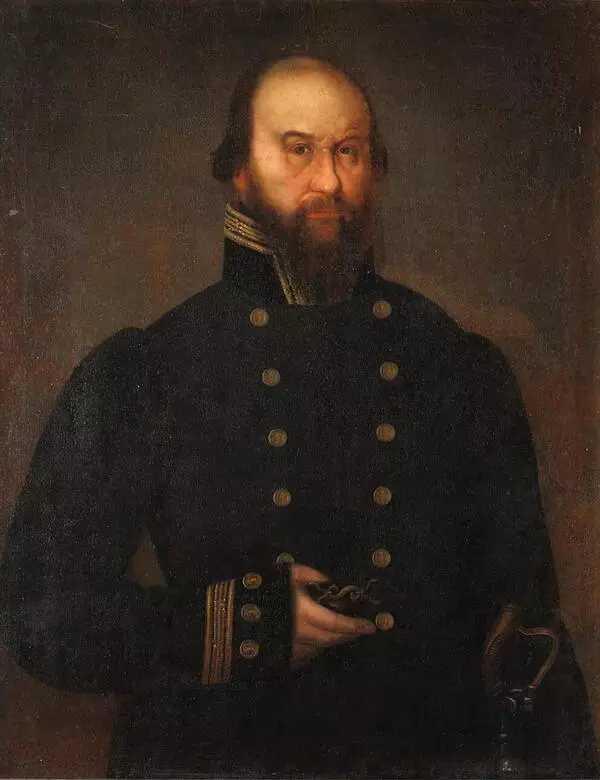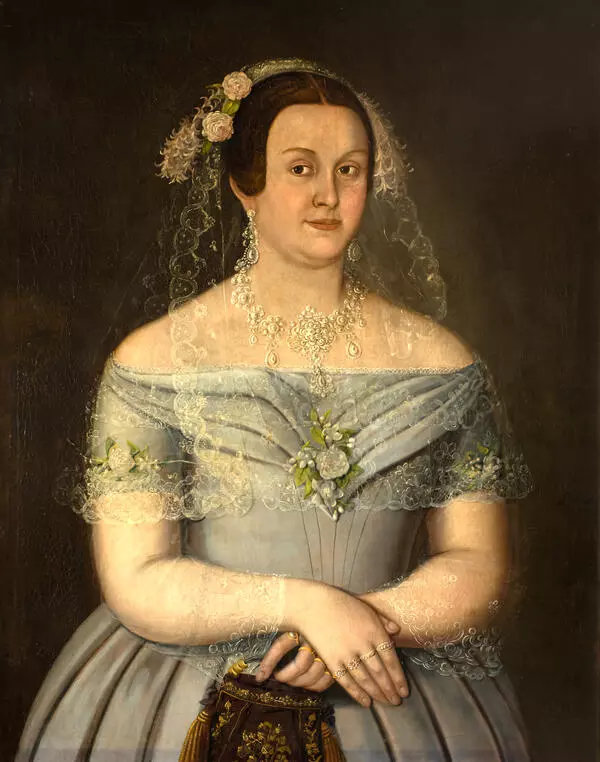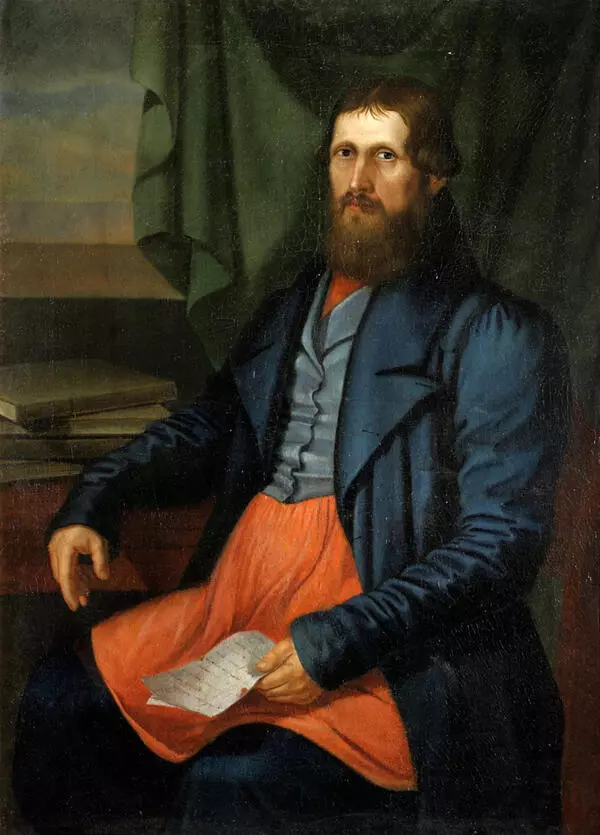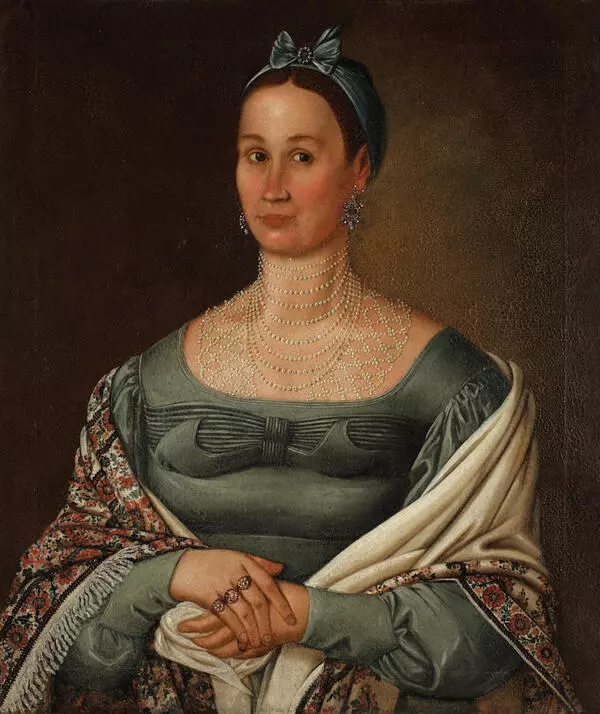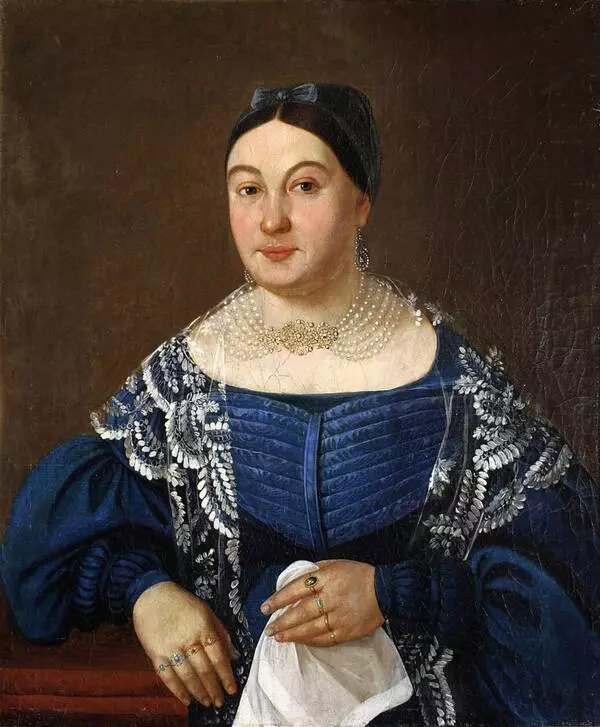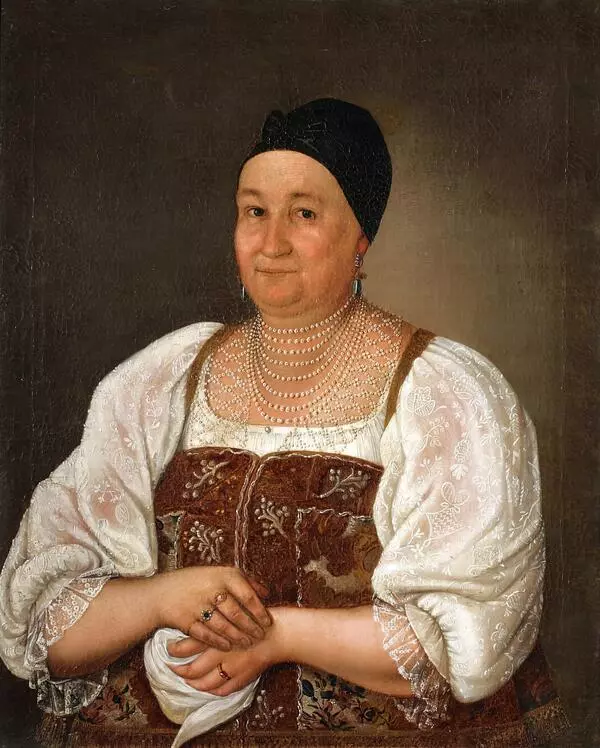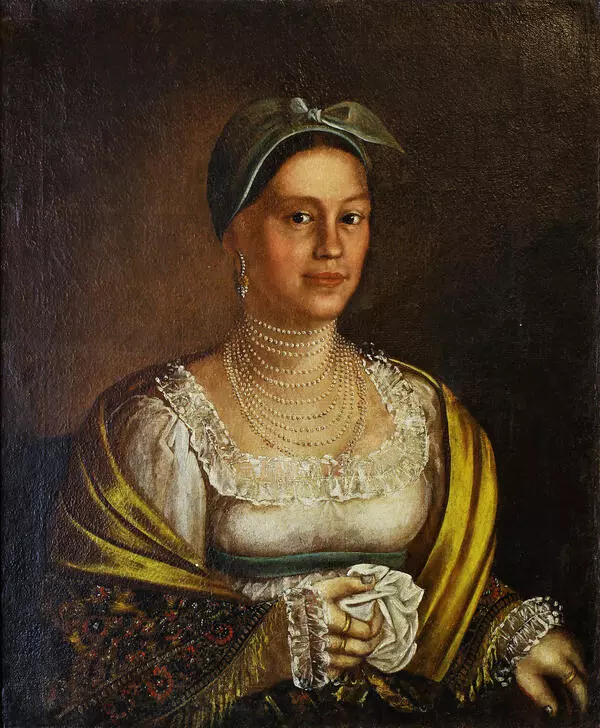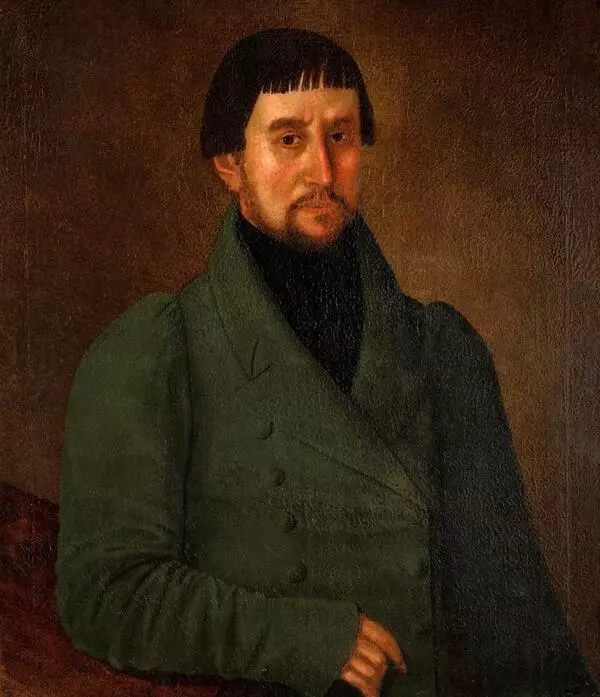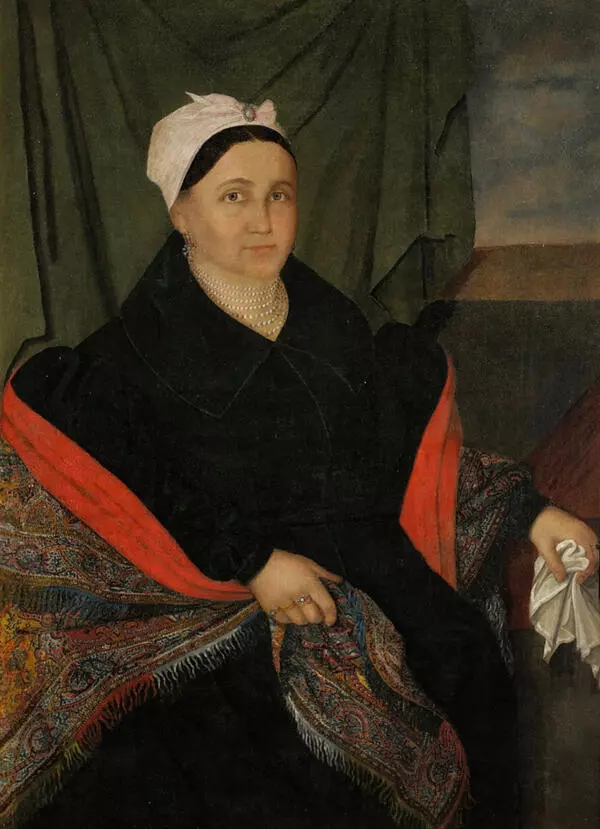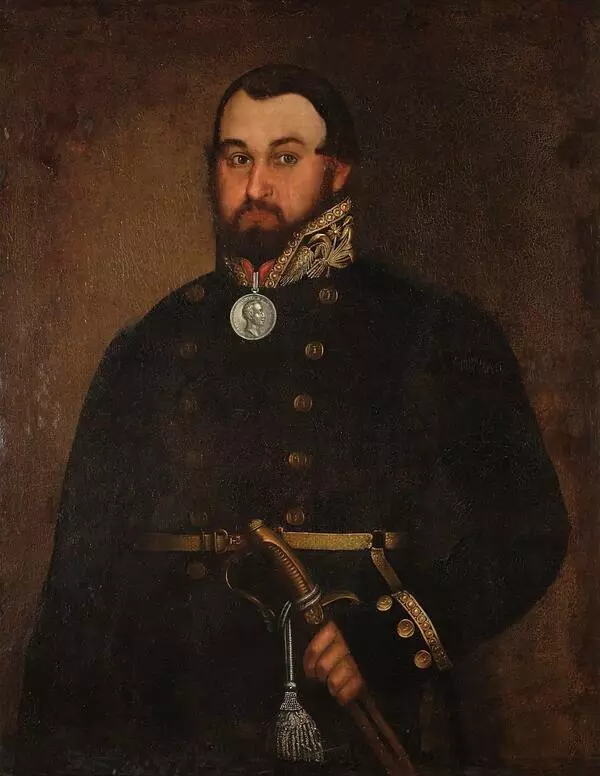The portrait of Vasily Andreyevich Pivovarov from the collection of the Uglich Museum was painted for the orphan home founded by Pivovarov. In the accession register, this painting was credited to Ivan Tarkhanov based on the information of the donor.
The artist emphasized the austerity and dignity in the image of the successful merchant, recognized the high quality of his frock coat, and thoroughly detailed the medals and orders. Vasily Andreyevich Pivovarov was born in Uglich, became an honorary citizen of St. Petersburg, and was awarded three orders: the Order of Saint Anna, 3rd class, and the Orders of Saint Stanislaus, 2nd and 3rd class. After his father died when Vasily was a teenager, he was sent to St. Petersburg where he studied commerce and worked in a shoe shop. Having achieved success as a cloth merchant, he married the Uglich citizen Yevdokia Vasilyevna Ozhigova. Until the end of her life, the wife of the successful merchant remained committed to the old style of dressing and social conduct.
Pivovarov was actively engaged in charity work, and after receiving his “provincial inheritance” in Uglich, including old manuscripts and printed books, also became an avid collector. This hobby was quite popular among his contemporaries, but other collectors often became “miserly knights” hiding their treasures. Pivovarov, on the other hand, grouped his finds in collections and donated them to St. Petersburg University. He founded the department of rare books and manuscripts at the university’s library. Pivovarov wrote that the collection of books can “offer greater value to the university” and “should be used most actively and to the best advantage of both teachers and students.” In total, the university and the Main Pedagogical Institute that was located in the same building of the Twelve Collegia (later the libraries were combined) received 356 early printed books of the 16th–18th centuries, 167 manuscripts, over 100 foreign books in Latin, German, French, and Polish, 14 rare geographical maps, as well as 1,396 coins and medals — Russian and foreign, gold, silver, and copper ones.
Vasily Pivovarov and his wife were buried at the Epiphany Monastery, near the main cathedral, in their native city of Uglich.
The artist emphasized the austerity and dignity in the image of the successful merchant, recognized the high quality of his frock coat, and thoroughly detailed the medals and orders. Vasily Andreyevich Pivovarov was born in Uglich, became an honorary citizen of St. Petersburg, and was awarded three orders: the Order of Saint Anna, 3rd class, and the Orders of Saint Stanislaus, 2nd and 3rd class. After his father died when Vasily was a teenager, he was sent to St. Petersburg where he studied commerce and worked in a shoe shop. Having achieved success as a cloth merchant, he married the Uglich citizen Yevdokia Vasilyevna Ozhigova. Until the end of her life, the wife of the successful merchant remained committed to the old style of dressing and social conduct.
Pivovarov was actively engaged in charity work, and after receiving his “provincial inheritance” in Uglich, including old manuscripts and printed books, also became an avid collector. This hobby was quite popular among his contemporaries, but other collectors often became “miserly knights” hiding their treasures. Pivovarov, on the other hand, grouped his finds in collections and donated them to St. Petersburg University. He founded the department of rare books and manuscripts at the university’s library. Pivovarov wrote that the collection of books can “offer greater value to the university” and “should be used most actively and to the best advantage of both teachers and students.” In total, the university and the Main Pedagogical Institute that was located in the same building of the Twelve Collegia (later the libraries were combined) received 356 early printed books of the 16th–18th centuries, 167 manuscripts, over 100 foreign books in Latin, German, French, and Polish, 14 rare geographical maps, as well as 1,396 coins and medals — Russian and foreign, gold, silver, and copper ones.
Vasily Pivovarov and his wife were buried at the Epiphany Monastery, near the main cathedral, in their native city of Uglich.
